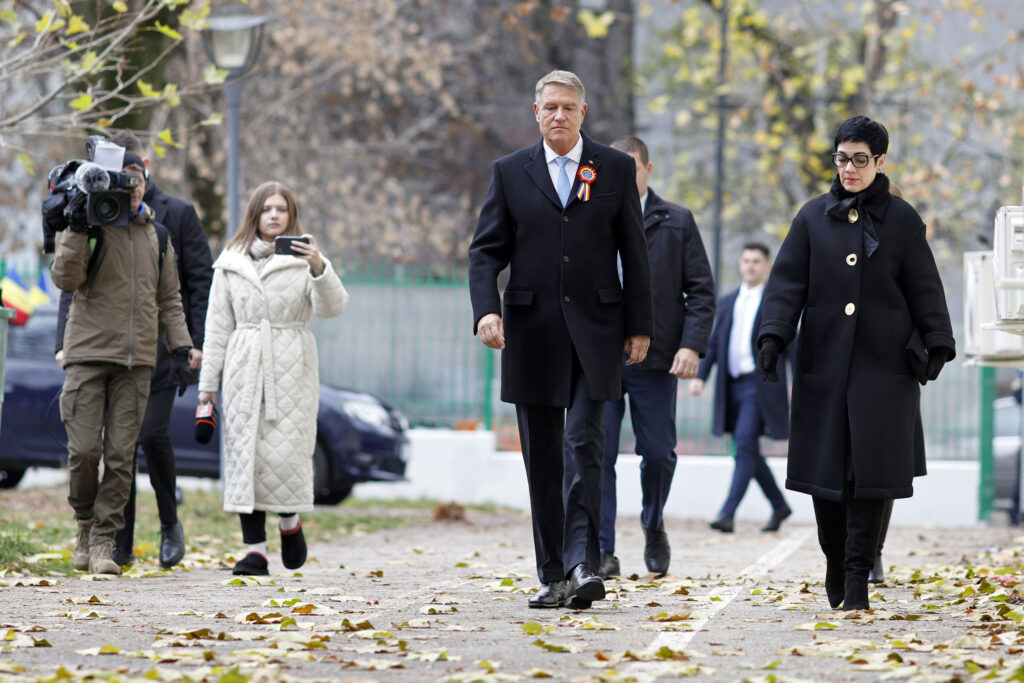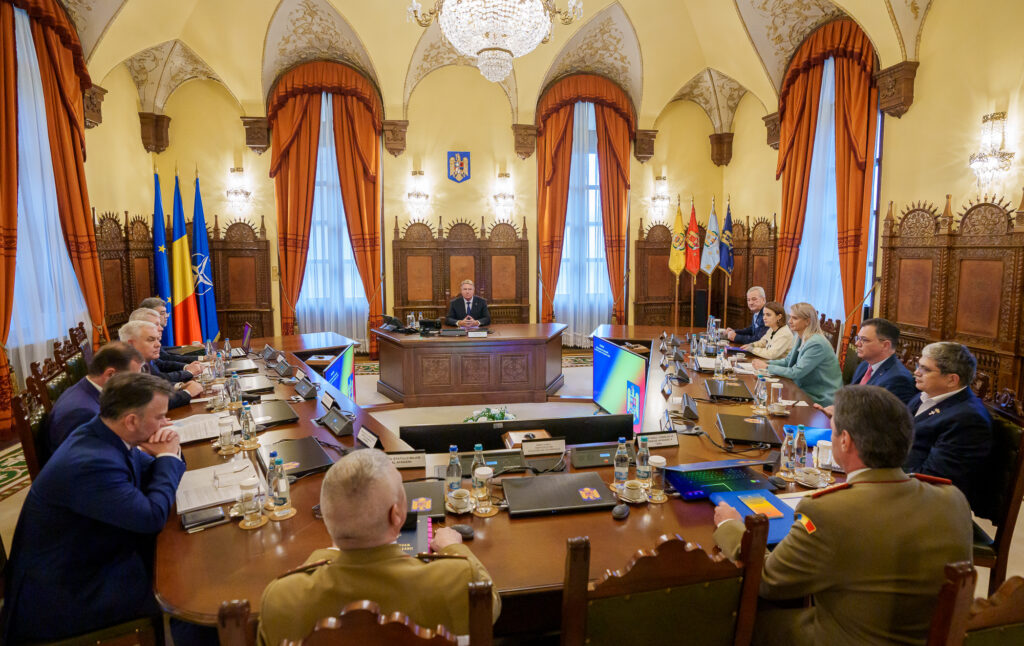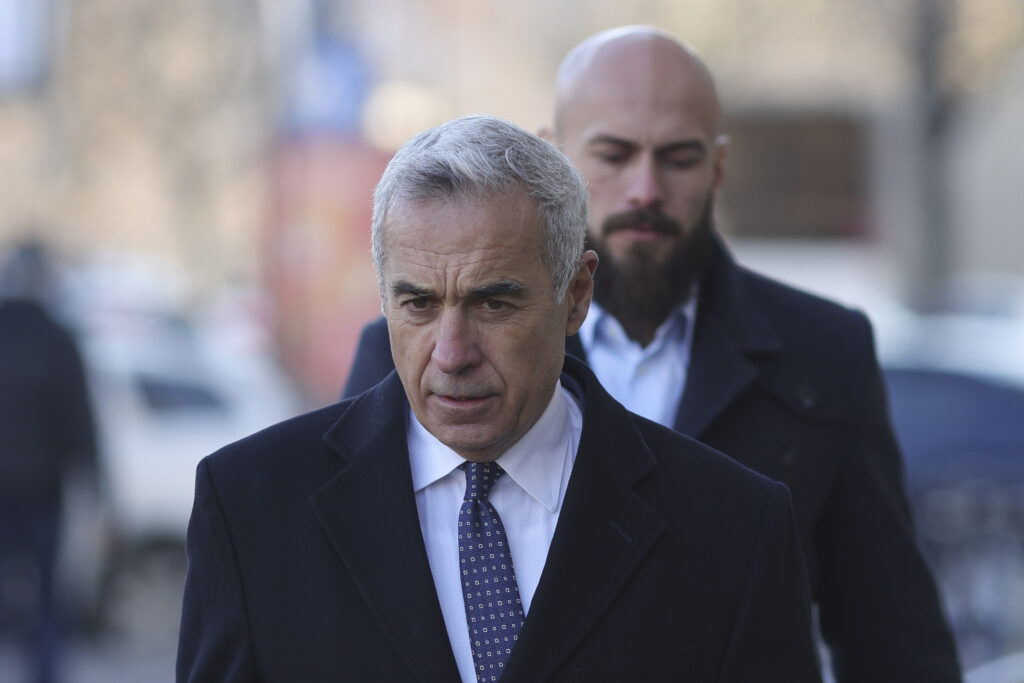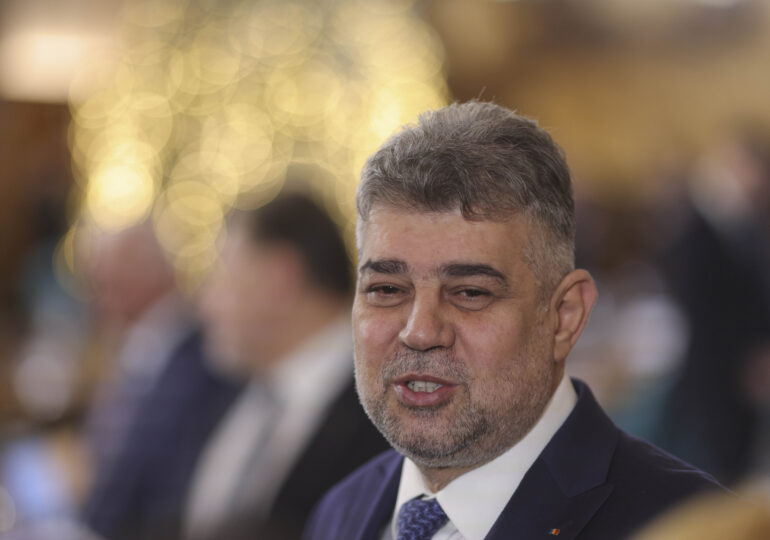The incumbent president claims that some candidates who violated the law by making antisemitic statements and legionary propaganda have not been sanctioned, being allowed to enter the race.
12 days after the annulment of the presidential elections by the Constitutional Court, the first official reaction of the head of state regarding the situation created has come.
Klaus Iohannis, whose mandate was extended by the Constitutional Court until the swearing-in of the newly elected president, responded to journalists’ questions, ahead of a meeting of the European Council.
He confirmed that the intelligence agencies in our country were taken by surprise by "the intervention... so subtle and so complex that practically much of what happened was discovered after the first round of elections."
Before the vote, on several occasions, both the head of state and Parliament, through the head of the SRI Control Commission, announced to the population that there were no security issues regarding the conduct of the electoral process.
Don't ask me to disclose things I'm not allowed to say. It's a well-founded administrative decision. It also concerns the unification of Romania with the Republic of Moldova, and I suspect Romania didn't want to unite with Ukraine either.
Marcel Ciolacu, Prime Minister, President of the PSD
Prime Minister Marcel Ciolacu also came out publicly and stated that George Simion, the leader of the extremist AUR party, despite being banned from entering Moldova and Ukraine, does not mean he cannot run for the presidency of Romania, although Kyiv accuses him of "anti-Ukrainian" activities.
Romania Saved by Allies
From the public statements made by Klaus Iohannis, a major institutional and political deadlock that affected the intelligence agencies' activities emerges.
Furthermore, the head of state suggests that this deadlock was overcome only with the help of interventions from the European Union and NATO partners.

"...foreign influence was found later, and I must say that here we had significant support from strategic partners, who helped Romanian entities find out what happened after all. That's why it took a few days from the election date until these issues could be discussed in the Supreme Council for National Defense with data, as you saw," announced Iohannis.
Although trying to find excuses for the intelligence agencies and defense institutions, the president's arguments are thin and rather deepen the security crisis in Romania.
"We (the president, the government, and the intelligence agencies - ed.) have been discussing these issues for years, so it's not something we just found out yesterday. But from knowing that there is this danger to actually finding out what happened concretely is a long way, and we must understand that none of those who attack us do it in a transparent way," said Klaus Iohannis.
Hybrid Attacks Were Not Taken Seriously
The statement above indicates the description of the failure in protecting the electoral process, but especially, despite the assurances given repeatedly, there was no coordinated action procedure at the CSAT level in case of a hybrid attack.
Moreover, there were no case studies on various scenarios, possibly used by Russia to compromise the political system in Romania.
CSAT has no role in the actual electoral process. The incumbent president has no role in the actual electoral process. So I reacted when I received signals from the services about foreign interference. So, attention, CSAT was convened on foreign interference, not on how the campaign went.
Klaus Iohannis, President of Romania
And this happened even as the Kremlin has used the same macro-strategy, adapted in several countries, for at least a decade, following the annexation of the Crimean Peninsula.

"They hide perfectly in cyberspace, it's almost impossible to find the connection and the thread. They use servers from all over the world, they use servers connected to other servers, to other servers," said Iohannis.
What the incumbent president did not say is why hybrid attacks were not taken seriously in Romania. All his statements in the past year aimed to reassure the population and ignore Russia's increasingly pronounced hostility towards Romania.
CSAT is prohibited from communicating conclusions and documents to entities other than those specified in the CSAT law, and the CCR is not among those that receive official communications with secret documents. Here, I think the whole process is understood. It was very complicated.
Klaus Iohannis, President of Romania
No action plan regarding preparations for protecting society, the political system, and the electoral system was presented.
Discussed in CSAT, Yet Unresolved
"So no one should imagine that these attacks are made with a signature with love from the East. No. They are very, very difficult to document. And in the case of elections. OK. We have created specific entities in CSAT that deal exactly with this, and everyone is aware that the problem exists, but from knowing that the problem exists to preventing it and remedying it is often very complicated," Iohannis added.
According to the above statements, there were individuals and directions in CSAT that had the obligation to solve the interference problem and missed it.
The situation created indicates the deadlock at the institutional level and the lack of decision from Klaus Iohannis.
He had the full authority to monitor the activity of those entities and ensure they achieve their objectives.
"...neither CSAT nor any service can start spying on their own politicians. We would go back to where we were before '89. Everyone has the freedom, if they want to run, to campaign, to tell people what they want. That's how it is in politics. You can't come and ban a candidate because he speaks nonsense during the campaign," Iohannis further stated.
Double Standard, the Origin of Chaos
But that's exactly what happened. There is a CCR decision that banned Diana Șoșoacă's candidacy on grounds of extremist manifestations.
In reality, the electoral process was disrupted by political leaders who wanted to take advantage of intelligence reports.

Iohannis' statements suggest that Marcel Ciolacu, the Prime Minister, is suspected of using intelligence reports to gain an advantage regarding his candidacy for the Cotroceni Palace.
In at least two situations, the Prime Minister positioned himself oddly, referring to the scandal of George Simion's bans, the leader of AUR, and the shocking decision of the CCR, made by judges appointed by the PSD, to block the entry into the presidential race of a single extremist, pro-Russian candidate, while two others were in similar situations, namely Simion and Georgescu.
"It seems that there were also violations of the law in the area of antisemitism, of legionary propaganda, which should have been monitored more closely. Probably, next time this will happen. But, attention, this is a very, very serious matter, and I want us to treat it as it is: secret services are not allowed to monitor politicians internally, simply because we would immediately go back to the old security system, and that is unacceptable," Iohannis announced.
In reality, the failure is a shared one - of the intelligence agencies led by the incumbent president - an extremely painful failure that has put Romania in "quarantine" regarding democracy after the Constitutional Court annulled the presidential elections.
Russia's hybrid attack has not ceased, and politicians in the country are doing everything possible to further undermine Romania. The economic, political, and social effects of the shock caused by Kremlin's massive interference are already visible, and the state's reaction is weak and chaotic.

